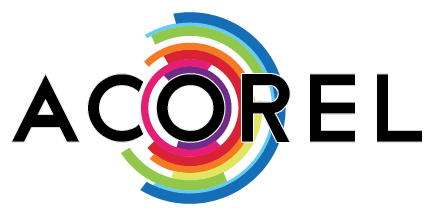Rik Loenen
Read all my blogsCustomer Experience: B2B vs. B2C
Every day the people at Acorel help companies to improve their customer’s experience. Advising and building a solution which improves the experience of the customer, is a unique process. An important differentiator in this process is understanding if an organization operates in a B2B or a B2C market. For both markets customer experience is equally important, but it is practiced in a different way. Why? Find out below.
Before we dive into the difference between the customer experience of B2B and B2C, it is important to realize what customer experience entails. There are many different definitions to be found online, but in this case we stick to the definition of Gartner: “customer experience is the customer’s perceptions and related feelings caused by the one-off and cumulative effect of interactions with a supplier’s employees, systems, channels or products.” In other words, during the customer journey, the customer has one or multiple interactions (touchpoints) with a company. The sum of the experiences of these various touchpoints tells the overall customer experience of that journey. So, how is this different for B2B and B2C?
Sales
Looking at the sales process, there are quite some differences between B2B and B2C. Below I have picked a few examples:
• B2B has long sale cycles.
• B2B involves more people.
• B2B can be more strategic.
• B2C sales cycle takes minutes to a few days.
• B2C is triggered by emotion.
The last bullet might be the most important differentiator between the two. B2B organizations purchase products from a rational standpoint. The buyer wants to achieve a certain goal whereas consumers purchase products quite often on impulse, by emotion. Even with expensive products. Just think about it, when was the last time you purchased something that you did not really need, but bought anyway?
Marketing
The same applies to the marketing process. Consumers expect to receive simple and easy messaging that appeals to the emotion. However, business driven marketing should focus more on time, money and resources.
Another difference from a marketing point of view, is that organizations that operate in de B2B market aim their campaigns to be tailor made for their customers. The goal here is to build long term personal relationships and earn the trust of the customer.
B2C organizations will in general focus on a much larger group of people and use segmentation to determine the target group. The aim here is to build a transactional relationship, by focusing on brand awareness and selling products as quickly as possible.
Service
When looking at service you also see quite some differences between B2B and B2C. Selling products in a B2B market often goes hand in hand with a service contract. Having such a service contract simplifies the life of the customer in case of maintenance and/or breakdowns. In addition to that, the customer usually has a contact person (account manager) from the supplier that can be contacted directly in case of an issue or concern. The issues or concerns that B2B organizations run into are in general more complex.
Looking at service from a B2C perspective, a consumer does not have a direct connection with an employee of the supplier. They need to contact customer service with their complaint and hope for the best. In this case, if the consumer is not satisfied by the way the complaint is handled social media can come in handy. By using social media, a consumer can put more pressure on the supplier which turns out to be rather effective. This is something you will hardly find in B2B.
Conclusion
Of course, there are a lot more differences between B2B and B2C, but I hope that with this blog I clarified some of them. By understanding the differences between these two markets we as Acorel help our customers to build stronger relationships with their customers, supporting the sales reps, creating relevant marketing campaigns and more.


